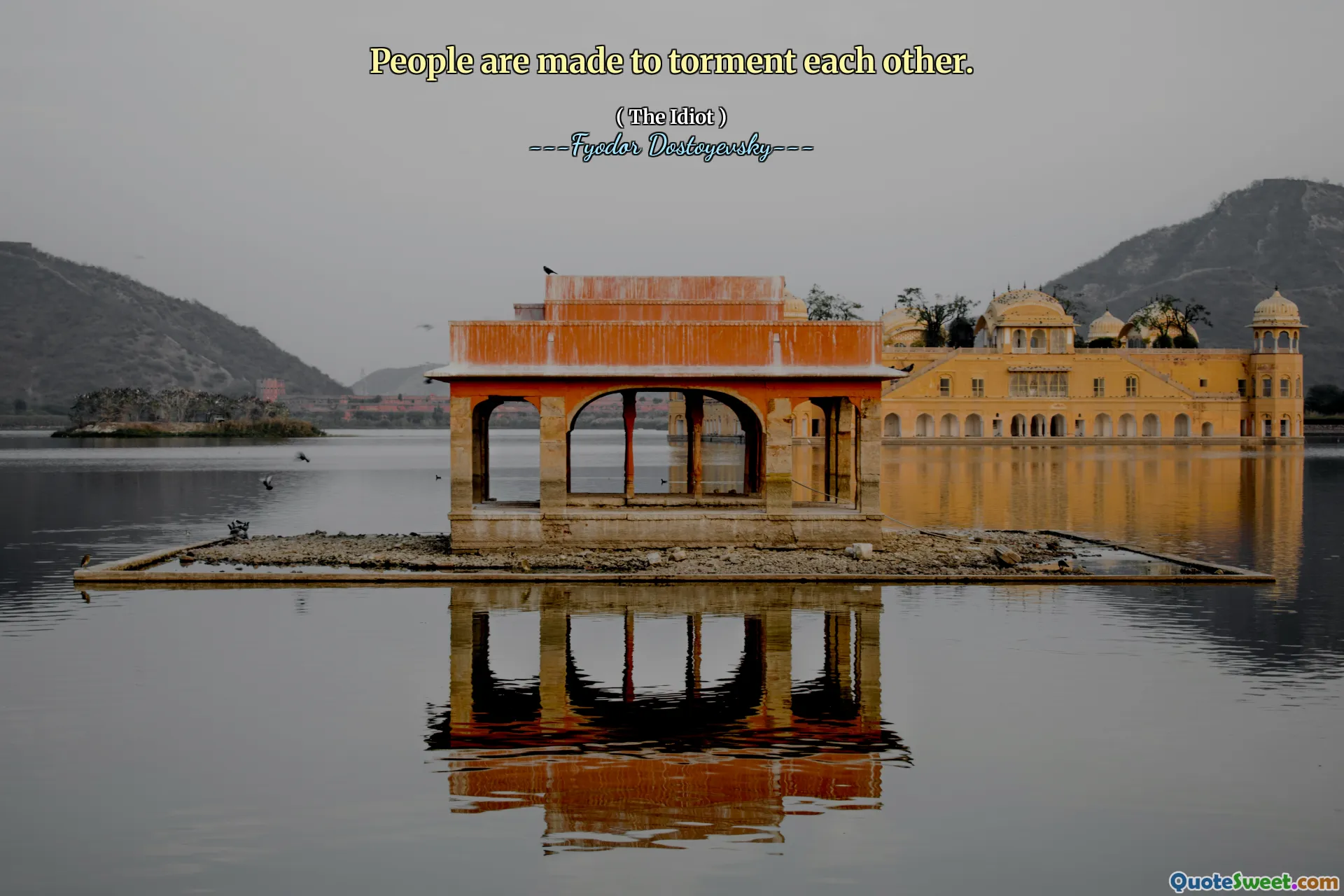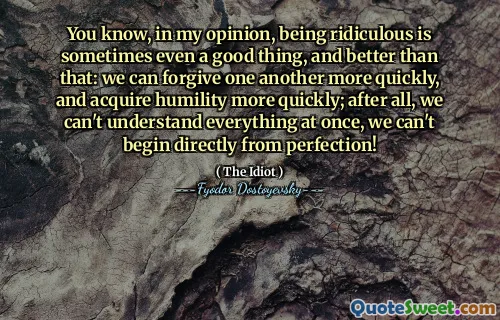
People are made to torment each other.
This quote delves into the darker aspects of human nature, suggesting that suffering and conflict are inherent parts of human existence. It evokes a sense of existential contemplation, reflecting on the idea that perhaps our tendencies toward conflict, competition, and even cruelty are deeply ingrained in us. Such a perspective challenges the notion of innate human goodness, prompting us to consider whether our societal structures and personal relationships are fundamentally built on struggle. The quote aligns with the themes explored in Fyodor Dostoyevsky's 'The Idiot', where complex human motivations and moral dilemmas often reveal the capacity for pain and suffering. Recognizing this intrinsic aspect of human life can serve as a catalyst for introspection—asking whether we can transcend these tendencies or if they are woven into the fabric of our existence. It also raises questions about how society manages conflict and whether efforts to foster compassion and understanding can ever fully ameliorate the underlying impulses toward suffering. Ultimately, this view can either lead to despair, embracing suffering as unavoidable, or inspire a quest for genuine connection and empathy as a means of breaking the cycle of pain. Understanding that suffering might be universal does not imply resignation but rather a call for greater awareness of our shared human condition and the need for compassion amidst inevitable struggles.







